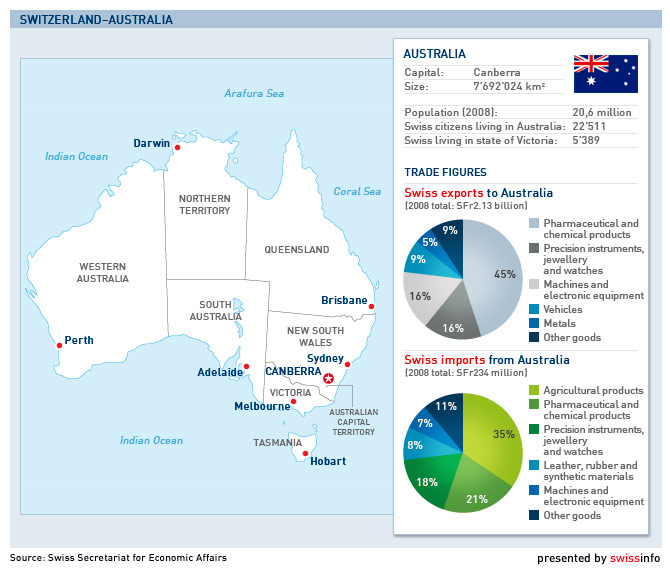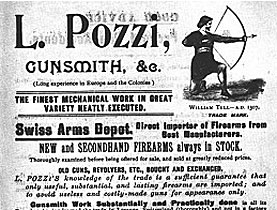Run, Steve, run

In Australia, he enjoys iconic status. Steve Moneghetti is renowned for his success in the toughest of all Olympic disciplines: the marathon.
But few people know that Ticino blood runs in his veins.
We have arranged to meet at the Racer’s Café in Ballarat, a small town 60 miles out of Melbourne – a fitting place to interview a marathon runner who has left his mark on the sporting history of Australia!
Steve Moneghetti, wearing a black singlet and trainers, joins me at the double. “I try to run at least 60 miles a week”. With his wiry physique and firm handshake, Steve is determined to keep fit. Though no longer a stripling, he is still a world-class runner: “I am 47 and believe I am in the world’s top three in my age group”.
A dyed-in-the-wool Australian, as his accent confirms, Steve Moneghetti’s roots go back a long way. His great-grandfather left the Ticino village of Monte Carasso in 1856 to seek his fortune in Australia. It was the time of the Gold Rush, but like other Italian-Swiss emigrants he did not strike it rich.
Marathon family search
“Having failed to find gold, my great-grandfather began making tools and machinery for the other miners,” says Steve. “Unfortunately, I don’t know his story in any detail. I believe his wife and children came out to join him at a later date.”
Touring Europe at the age of 22 (“I was overseas for a series of running events”), Steve wanted to find out more about his family origins.
“I was in Milan for a competition. I took the train to Bellinzona, then walked all the way to Monte Carasso, on the other side of the River Ticino.”
Steve did not know a word of Italian. Getting information about the Moneghetti family (Monighetti in Ticino) was not easy.
“No one was able to help me. I had a little under an hour before catching the train back to Milan, so I went into a phone box and looked up the name Monighetti in the directory. I tore out the page with all the relevant addresses and took it back to Australia, to the great joy of my father”.
As the years went by, step by step, Steve Moneghetti made his name as one of Australia’s most successful marathon runners. His fame also spread abroad and it was an interview in a French magazine that led to a renewed link with his family in Ticino.
Ticinesi like Australians
“Someone read the article and got in touch with me. In 1994, when I was competing in the Stramilano, I took the opportunity to make a second journey to Monte Carasso. And I went back again a few years later, this time with my parents. For them, it was an amazing experience to visit the place our family had come from.”
“We liked Bellinzona very much: the clean, cool air, the mountains not far away… I found people very open and friendly, like Australians. Maybe because we share the same attachment to the soil, and a strong sense of family.”
Steve is a familiar figure at the Racer’s Café in Ballarat. “Hi, how are you today?” “See you on Saturday, ok Steve?” Our interview is frequently interrupted. Across the street, the running track around Lake Wendouree is named after him.
“It’s strange when you think that at school I was not regarded as a promising athlete,” Steve remembers. “I was not much good at sprint events or the high jump. I came to the fore at a later stage, when we started running longer distances. The longer the distance, the better I performed.”
The most satisfying moment in his career was at the 1997 World Athletics Championships in Greece. “I ran the original marathon route, from Marathon itself to Athens. I came in third, behind two Spaniards, but I felt as if I had won gold.”
Swiss influence
Then he had some unforgettable races with another emblematic marathon runner, the Italian Gelindo Bordin.
“We had some fine tussles. In the 1987 World Championships, we ran side by side for 40 kilometres, but Gelindo beat me over the final stretch, winning bronze. But I got my own back in 1990, in Berlin, where I ran the fastest marathon in the world that year.”
Speaking of sport in Switzerland, Steve admits that he is … behind the times. “I only know about Roger Federer. I’m not aware of any Swiss athletes who have done well in the marathon”.
“It’s strange,” concludes Steve, before running off (literally!) to his next appointment. “At one time, the Australian marathon team included Robert de Castella, Danny Bolz and myself: three athletes of Swiss origin, one from each language region”.
“But in Switzerland, there is no one. It must be the mountains…”.
Luigi Jorio in Ballarat, Australia, swissinfo.ch
Stephen (Steve) James Moneghetti was born on 26 September 1962 in Ballarat (State of Victoria, Australia).
He began his athletic career running the 10,000 metres. In 1986, running his first marathon, he won bronze in the Commonwealth Games in Edinburgh.
In 1990, he won his first marathon gold in Berlin with a time of 2:08:16 (the world record at the time was 2:06:50).
Other outstanding results: gold in the Tokyo marathon (1994); gold in the 15th Commonwealth Games (1994); bronze in the Athens World Athletics Championships (1997).
He has competed in the Olympics on four occasions: Seoul (1988), Barcelona (1992), Atlanta (1996) and Sydney (2000).
He retired officially in 2000. He lives with his wife and four children in Ballarat, about sixty miles from Melbourne.


In compliance with the JTI standards
More: SWI swissinfo.ch certified by the Journalism Trust Initiative













You can find an overview of ongoing debates with our journalists here . Please join us!
If you want to start a conversation about a topic raised in this article or want to report factual errors, email us at english@swissinfo.ch.